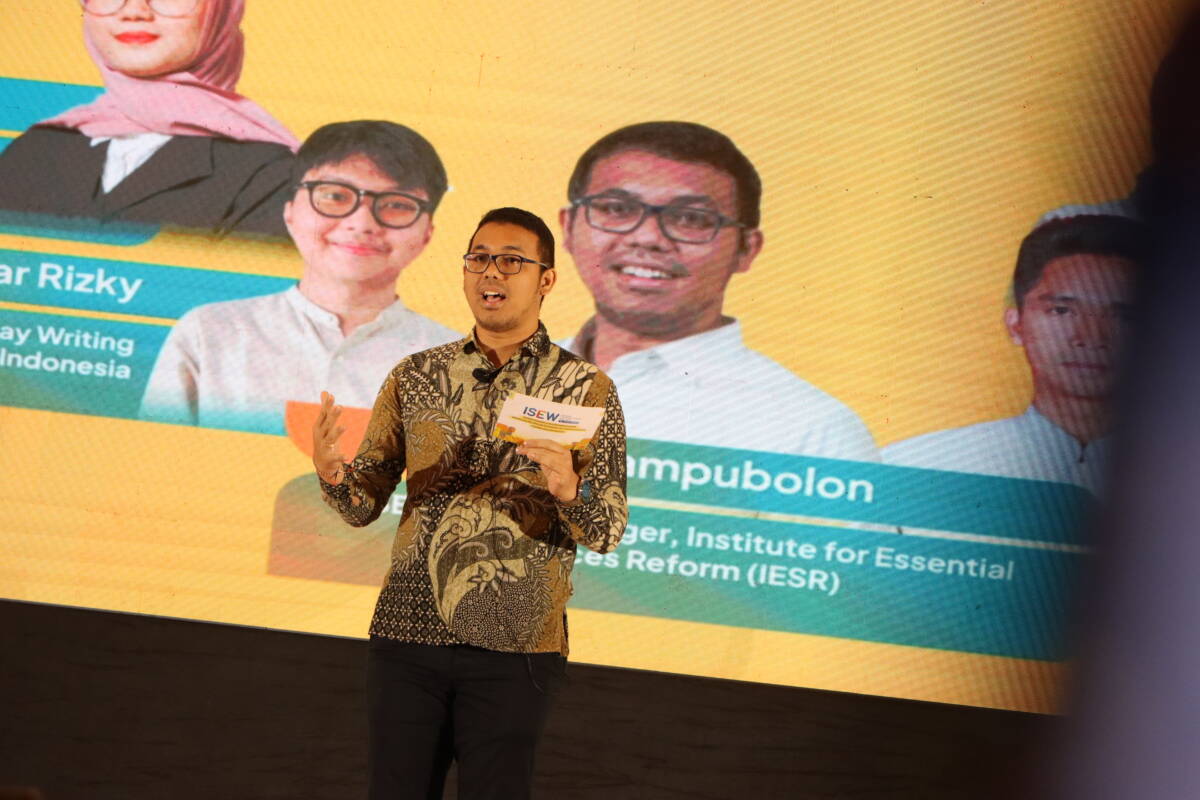Jakarta, September 17, 2024—The energy transition provides economic benefits and creates positive environmental and social impacts. The energy transition process is not only about technology transition but also about inclusivity and sustainability. For this reason, it is time for individuals to make comprehensive and equitable changes.
Agus P Tampubolon, Project Manager of Clean, Affordable and Secure Energy (CASE) for Southeast Asia, Institute for Essential Services Reform (IESR), emphasized the importance of small actions that have the potential to reduce emissions that make the earth hotter. Agus gave examples of several steps that can be taken, such as planting trees, turning off lights, or cycling, that look simple but, when done collectively, can create a significant impact.
“Every individual plays an important role in this change, and small actions begin the journey towards a more sustainable future. We do not own the earth; we are its custodians and borrow it from future generations. Therefore, it is important to act with the future in mind and leave a better world for our children and grandchildren,” Agus said on Friday, the fourth day of Indonesia Sustainable Energy Week (ISEW) 2024 (13/9/2024).
According to Agus, personal stories have the power to inspire change. Therefore, through sharing experiences and uniting voices, Agus said, each individual can create more significant change, especially in climate action and energy transition. Every story is a step towards a better future.
Wahyu Hantoro, Head of Tampir Wetan Village, Candimulyo, Magelang, recounts how his village, two-thirds of whose area is water scarce, decided to adopt renewable energy in the form of solar panel water pumps. Wahyu admits that residents initially resisted solar panels because they were considered expensive and complicated.
“However, the villagers finally accepted this change through communication and discussion. Renewable energy solutions are helping the village deal with water issues better. This story shows that the key to energy transition is good communication and shared understanding,” Wahyu emphasized.
Puty Puar, Founder and Executive Director of Buibu Baca Buku, reminds us that mothers are often the first to feel the impact of climate change, even though their voices are usually ignored in decision-making.
“As a mom, I feel responsible for paying attention to issues like carbon footprint and energy transition. I see it as important to involve more women in the conversation on climate change and energy transition,” added Puty Puar.
Muhammad Ezra Aimar Rizky, the First Winner of the Road to ISEW Essay Competition organized by the CASE for Southeast Asia Project, highlighted Indonesia’s challenges in promoting an equitable energy transition. Structural inequalities in electrical energy policy are still felt, especially by low-income households. However, the energy transition can also be a momentum for broader social and political change through the democratization of energy.
“Steps are needed to improve energy democratization, such as increasing public participation in the decision-making process and creating a climate of openness that supports open and inclusive dialogue. By actively involving the community, a more democratic energy transition policy can be produced based on needs and aspirations,” said Ezra Nasir.
Rhea Oktaqiara, the Third Winner of the Essay Competition, emphasized the importance of paying attention to vulnerable groups in the energy transition. Women, the economically weak, and Indigenous communities are often the most affected by this transition. Intensive discussions with local communities should be part of every step of the transition.
“Indonesia has a 31 percent renewable energy target by 2030 and Net Zero Emissions (NZE) by 2060 or earlier. Are Indonesian villages ready to contribute to this big agenda? This challenge requires the involvement of all parties, especially vulnerable groups, in ensuring a just energy transition,” Rhea said.

